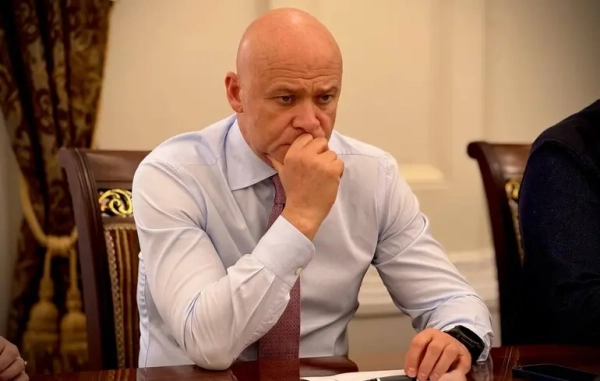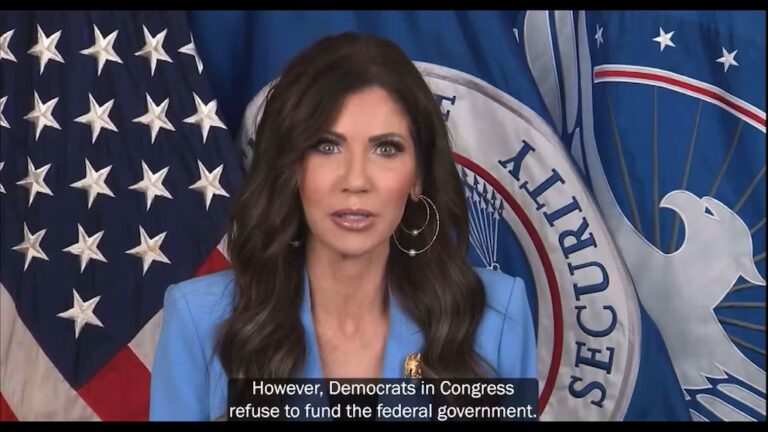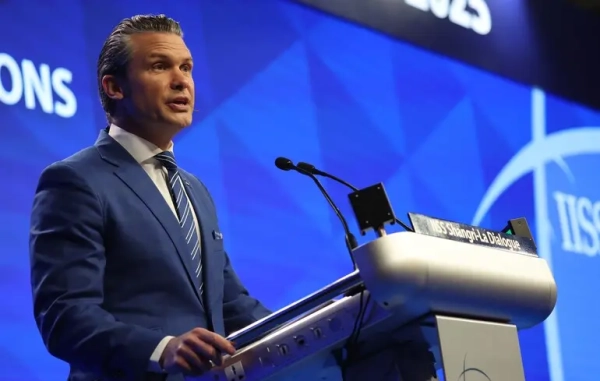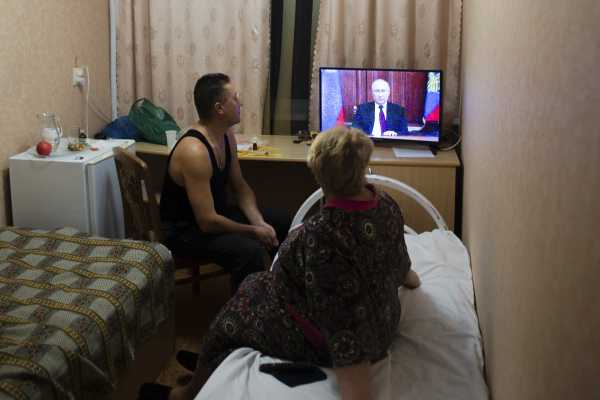
Perhaps the biggest question behind the current crisis in Ukraine is this: What is Vladimir Putin thinking?
The Russian president’s decision to deploy large numbers of troops to eastern Ukraine has already triggered new Western sanctions on Russia. A full invasion could lead to land warfare on a scale Europe hasn’t seen since World War II, a bloody and devastating conflict for Russians and Ukrainians alike. What could justify even threatening that?
Putin’s clearest answer yet came in a speech delivered on Monday. He believes that Ukraine is an illegitimate country that exists on land that’s historically and rightfully Russian: “Ukraine actually never had stable traditions of real statehood,” as he puts it.
The overtures to the West from the current government of Ukraine are an attempt to stand up to this false regime, as is its antagonistic stance toward Moscow. This combination — an anti-Russian regime in what Putin views as rightfully Russian territory populated by rightfully Russian people — is unacceptable to him.
“Ukraine might have remained a sovereign state so long as it had a pro-Putin government,” says Seva Gunitsky, a political scientist at the University of Toronto who studies Russia. “Reuniting the lands formally would probably not have been at the forefront of the agenda if Putin felt he had enough political support from the Ukrainian regime.”
Putin’s basic claim — that there is no historical Ukrainian nation worthy of present-day sovereignty — is demonstrably false. However, this does not mean Putin is lying: In fact, Russia experts generally saw his speech as an expression of his real beliefs.
The speech is consistent with a body of statements from the Russian president going back years, ranging from a 5,000-word essay on Ukrainian history published last year to a 2005 speech declaring that “the collapse of the Soviet Union was a major geopolitical disaster [in which] tens of millions of our co-citizens and compatriots found themselves outside Russian territory.”
That Putin truly believes in aggressive Russian nationalism does not make a larger invasion inevitable. Depending on how you interpret the finer points of his views, it is possible to imagine off-ramps or Western concessions that could avert the worst possible outcomes.
But it does mean that simply reducing Russia’s motivation to one clear grievance — fear that Ukraine may join NATO or a simple aggressive desire to seize Ukrainian land — is a mistake. In Putin’s mind, these factors are inseparable in a complex historical and ideological narrative.
Understanding the current crisis, and perhaps even resolving it, depends on taking these nationalist ideas seriously.
History, according to Putin
The central contention of Putin’s speech on Monday is that Ukraine and Russia are, in historical terms, essentially inseparable.
“Ukraine is not just a neighboring country for us. It is an inalienable part of our own history, culture and spiritual space,” he said, per the Kremlin’s official translation. “Since time immemorial, the people living in the south-west of what has historically been Russian land have called themselves Russians.”
What we now call Ukraine, he says, “was entirely created by Russia or, to be more precise, by Bolshevik Communist Russia.” In this questionable narrative, a trio of early Soviet leaders — Lenin, Stalin, and Khrushchev — carved land away from Russia and several nearby nations to create a distinct and ahistorical republic called Ukraine. The creation of Ukraine and the other Soviet republics was an attempt to win the support of “the most zealous nationalists” across the Soviet Union — at the expense of the historical idea of Russia.
This illustrates what Putin means by “the virus of nationalism.” Ukrainian nationalism, in his view, is an infection introduced to the Russian host by the Bolsheviks; when the Soviet Union collapsed, and republics from Ukraine to Estonia to Georgia declared independence, the virus killed its host.
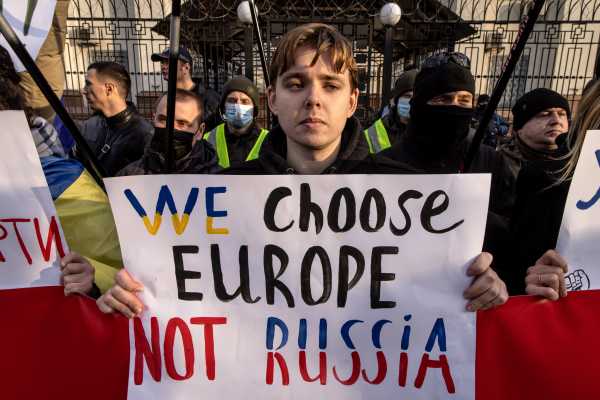
In reality, these countries have longstanding ethnonational identities distinct from Russia. But Putin does not accept this, treating the former Soviet republics — and, above all, Ukraine — as parts of Russia stolen from the motherland as a result of communist machinations.
“Radicals and nationalists, including and primarily those in Ukraine, are taking credit for having gained independence. As we can see, this is absolutely wrong,” he says. “The disintegration of our united country was brought about by the historic, strategic mistakes on the part of Bolshevik and Soviet leaders … the collapse of the historical Russia known as the USSR is on their conscience.”
As a result, Putin cannot see post-Soviet Ukraine as a real country; in his view, it has no real history nor national tradition to unite it. Instead, he sees it as a playground for oligarchs who deploy anti-Russian demagoguery as a smokescreen for their corruption. “The Ukrainian authorities — I would like to emphasize this — began by building their statehood on the negation of everything that united us,” he says.
Russian control over Ukraine, he argues, has been replaced by a different kind of foreign rule: that of the West. After the 2013 Euromaidan protests, which toppled pro-Russian leader Viktor Yanukovych, “Ukraine itself was placed under external control … a colony with a puppet regime.”
The ominous implication of this historical narrative is that the Ukrainian government, in its current form, is both illegitimate and intolerable.
It is illegitimate because Putin views Ukraine as a rightful part of Russia separated purely by an accident of history. It is intolerable because Ukraine’s government seeks to legitimate itself by courting conflict with Russia, both oppressing its native Russian speakers and menacing Russia’s borders.
A Western-backed government like this, Putin warns, threatens the very survival of the Russian state. In the speech’s most paranoid passages, he warns of Ukraine acquiring nuclear weapons with Western assistance, joining NATO, and ultimately serving as a launching pad for an American assault on Russia.
“This is not about our political regime or anything like that. They just do not need a big and independent country like Russia around,” he says. “This is the source of America’s traditional policy towards Russia.”
A military assault is not Putin’s only fear. He calls the Ukraine Maidan movement a “coup d’état” undertaken “with direct assistance from foreign states”; there is no doubt he fears a similar movement against his own government. Bringing Ukraine to heel — demonstrating that a pro-Western protest movement in Russia’s historical heartland cannot succeed — is vital to protecting his own government.
“I think the bigger threat for him is a regime threat, not an actual military invasion,” Gunitsky explains. “He thinks the West wants to subvert his regime the way they did in Ukraine. That’s why NATO is only a part of threat.”
In the Russian president’s mind, there is a seamless connection between Russian nationalism and Russian security interests. Putin believes that the current Ukrainian government threatens Russia for reasons bound up in their imperial past; restoring Russian control over territories that he believes it rightfully owns would be one way of ending the threat.
This thinking is most clearly on display in the most ominous line in Putin’s speech: one that can, in context, can plausibly be read as a threat to bring Ukraine back under Moscow’s direct rule.
“You want decommunization? Very well, this suits us just fine. But why stop halfway? We are ready to show what real decommunization would mean for Ukraine.”
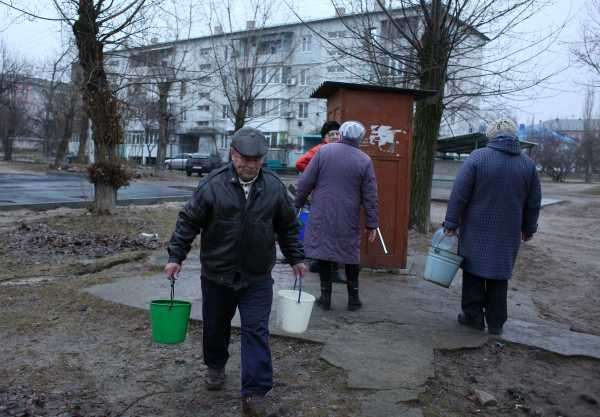
What Putin’s worldview means for Ukraine
Putin’s narrative is twisted history.
For one thing, it is simply incorrect to say that Ukraine has no independent national identity separate from Russia. Kyiv, the Ukrainian capital, was built centuries before Moscow. At the end of World War I, Ukraine declared independence from Russia; it was put back under Soviet rule by force.
“Putin is no historian,” Timothy Snyder, a Yale University historian of Eastern Europe, writes in the Financial Times. “Ukraine has its own distinct and fascinating history and Ukrainians have as much a right to a future as anyone else.”
It is not merely manipulation by elites that led people in former Soviet republics, from Estonia to Ukraine to Georgia, to attempt to exit Moscow’s orbit in the 1990s — it was real anger with Soviet repression and colonialism. And it’s Putin’s behavior, not some kind of elite Ukrainian manipulation, that has driven up support among Ukrainians for a tighter link with the West.
Yet Putin’s belief in the notion of Russian victimhood depicted in the speech appears to be sincere, consistent with his long public record.
“I am convinced that Putin was ‘speaking from the heart,’” says Alina Polyakova, the president of the Center for European Policy Analysis think tank. “Most of this was in his essay on Ukraine from last year.”
In that essay, Putin argued that “the formation of an ethnically pure Ukrainian state, aggressive towards Russia, is comparable in its consequences to the use of weapons of mass destruction against us.” In his 2014 speech announcing the annexation of Crimea, a Ukrainian territory that remains under Russian occupation, he argued that “it was [historically] impossible to imagine that Ukraine and Russia may split up and become two separate states.”
In a 2007 speech in Munich, Putin warned that the American-led global order was one in which “no one felt safe.” Russia and the world, he said, had reached “a decisive moment” for moving away from it. And, of course, there was the 2005 speech lamenting the end of the Soviet Union as a “geopolitical disaster” because (among other reasons) it led to ethnic Russians living in independent states outside Russian borders — like, for example, Ukraine.
But the fact that Putin has long harbored nationalist grievances does not clarify how far he is willing to go in pursuit of these ends.
A panel of leading Russia experts convened by Columbia University on Tuesday afternoon all agreed that Putin’s speech struck a belligerent nationalist tone and that it represented his sincere thinking on the topic. But they disagreed on the implications: most notably, whether Putin could be placated with Western concession and whether he is truly serious about using an invasion to rectify what he sees as historical crimes against Russia.
Fyodor Lukyanov, a leading Moscow-based foreign policy analyst, argued that Putin really wants the West to listen to his concerns about Ukraine and come to the negotiating table. “From the beginning,” he argued, the buildup on Ukrainian borders “was not a preparation for war.” Rather, it was a reaction to the fact that “all attempts by Russia in previous years to offer a more or less normal discussion about security arrangements were simply ignored.”
Stephen Sestanovich, a former US diplomat who worked on Russia issues, argued that the speech proved the opposite: that “Putin’s focus is less the European security order and more a kind of obsession with Ukraine as an illegitimate state that makes it almost impossible to imagine serious negotiations.” He agreed that Putin may not escalate much further in Ukraine, but that’s because the West had called his bluff by refusing to grant any major security concessions.
By contrast, the RAND Corporation’s Samuel Charap argued that an invasion was all but inevitable: Putin’s aggressive speech, together with his forward military deployments, signaled a clear intent to mount an all-out assault. And Kadri Liik, a senior policy fellow at the European Council on Foreign Relations, claimed that Putin’s revanchist nationalism was at odds with the Russian public.
“A real large-scale war for Ukraine would be hugely unpopular,” she said. It “would be the beginning of the end of Putin’s rule, and I think he might know that.”
There is no straight line from Putin’s speech to any one course of action. The basic difficulty in analyzing the risk of an all-out invasion of Ukraine — that a Russian bluff and Russian preparation for an invasion look extremely similar — remains in place even after the Russian deployment to eastern Ukraine.
Yet the speech helps shed light on a critical aspect of the crisis: why Putin is doing this. Fail to understand the sense of historical grievance, and the way that it shapes his view of the “threat” from Ukraine, and you fail to understand why he’s willing to play such a high-stakes game today.
Any solution to the crisis needs to take his worldview seriously — and figure out what, exactly, can be done to address it.
Will you support Vox’s explanatory journalism?
Millions turn to Vox to understand what’s happening in the news. Our mission has never been more vital than it is in this moment: to empower through understanding. Financial contributions from our readers are a critical part of supporting our resource-intensive work and help us keep our journalism free for all. Please consider making a contribution to Vox today.
Sourse: vox.com
